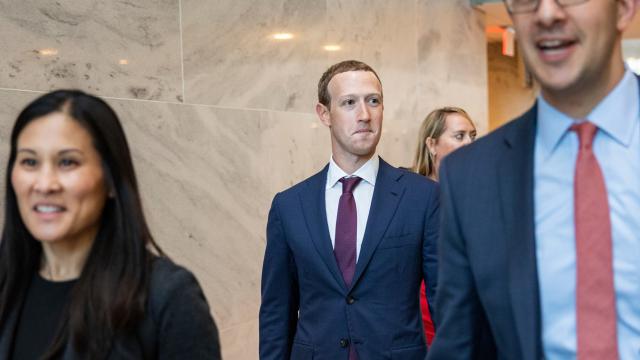As anxieties mount over Facebook’s plan to launch a cryptocurrency called Libra, Capitol Hill lawmakers are facing increasing pressure to intercede. This week, that intervention has taken the form of ominous letters by Democratic members of the powerful U.S. Senate Banking Committee, who warn payment service companies to “expect a high level of scrutiny” if they take on the risks of Libra.
It was additionally announced on Thursday that Facebook CEO Mark Zuckerberg will be the sole witness at a hearing before the U.S. House Financial Services Committee later this month.
These moves come amid reports about waning support among companies that committed funding to join the Libra Association, the Geneva-based nonprofit overseeing the project, and Facebook’s own failure to assuage concerns over the stability of the global financial system.
In the letters, Sen. Sherrod Brown, the ranking Democratic member of the Senate Banking Committee, and Sen. Brian Schatz, another Democratic member, urge the CEOs of Visa, MasterCard, and Stripe — all of which are Libra Association member organisations — to proceed with caution.
“We are concerned because key questions remain unanswered about the risks the project poses to consumers, regulated financial institutions, and the global financial system,” the letters say. “We urge you to carefully consider how your companies will manage these risks before proceeding, given that Facebook has not yet demonstrated to [U.S.] Congress, financial regulators — and perhaps even your own companies — that it is taking these risk seriously.”
The letters go on to state that Facebook has failed to address how it will prevent its new digital currency from being used to finance crime and terrorism, or how it will protect consumers from risks currently faced exclusively by accredited investors.
“Facebook is currently struggling to tackle massive issues, such as privacy violations, disinformation, election interference, discrimination, and fraud, and it has not demonstrated an ability to bring those failures under control,” they say.
The letters also warn the financial companies that Facebook’s troubles could soon become their own: “You should be concerned that any weakness in Facebook’s risk management systems will become weaknesses in your systems that you may not be able to effectively mitigate.”
Facebook did not immediately respond to a request for comment. Zuckerberg previously said Libra will not move forward without the blessing of financial regulators.
Last week, PayPal, one of Libra Association’s original 28 founding member organisations, announced it was dropping its support. “PayPal has made the decision to forgo further participation in the Libra Association at this time,” the company told Gizmodo, adding that it “remains supportive of Libra’s aspirations.”
The news came shortly after David Marcus, who is leading the project at Facebook, told reporters that he had “no knowledge” of any specific organisation’s plans not to participate.
Earlier this year, U.S. House Democrats circulated legislation aimed at halting Facebook’s plans, citing concerns over the use of cryptocurrencies to skirt anti-money laundering rules. The bill, known as the “Keep Big Tech Out of Finance Act,” would prohibit any U.S. tech company with an annual revenue of over $37 billion from issuing digital currencies. The legislation is expected to be a topic at the House hearing where Zuckerberg will testify.
At a press conference in July, Treasury Secretary Steven Mnuchin called cryptocurrencies, including Libra, a matter of “national security,” and pointed to the use of Bitcoin and other digital currencies in a litany of criminal behaviour, including “cybercrime, tax evasion, extortion, ransomware, illicit drugs, and human trafficking.”
